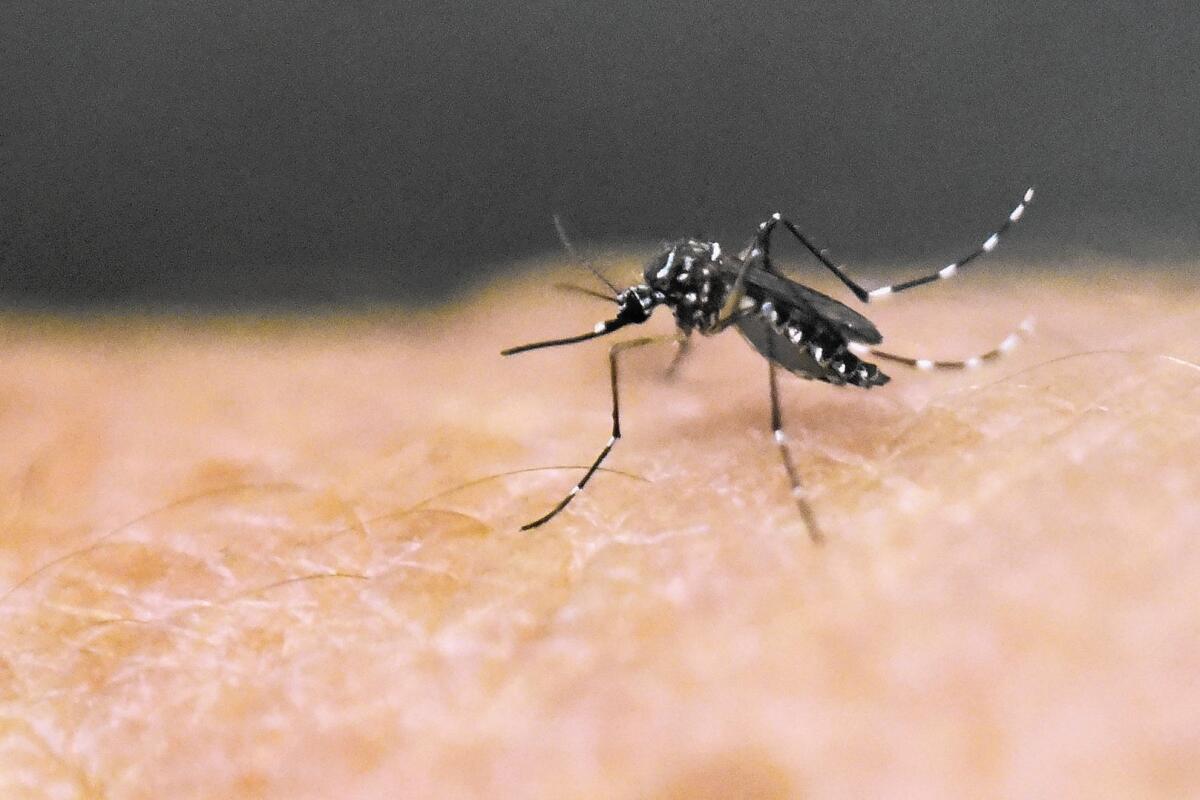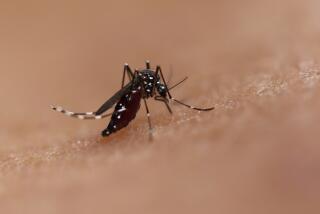Should you avoid travel to areas affected by the Zika virus?

What is Zika?
Zika is a mostly mosquito-borne virus that shares some characteristics with the more familiar West Nile virus. It is carried by the Aedes mosquito, the same one that spreads chikungunya, which became an issue last year when it cropped up in North America. Zika is not a new illness, but is newly worrisome because it is spreading.
What are the symptoms?
Fever, rash, joint pain, conjunctivitis and sometimes muscle pain and headache, according to the Centers for Disease Control. “Less than half the people who are exposed develop symptoms,” said Dr. Glenn Hardesty, an emergency room physician at Texas Health Arlington Memorial Hospital.
Where is Zika an issue?
The Caribbean, Central America, Mexico, Puerto Rico, South America and Africa. For a complete list, visit the CDC site.
Can Zika kill me?
Unlikely, the CDC said.
If it’s not fatal, why the sudden concern?
Officials in Brazil, where Zika is reported, noticed a spike in the number of children born with microcephaly, which the Mayo Clinic website defines as a “rare neurological condition in which an infant’s head is significantly smaller than the heads of other children of the same age and sex.... Children with microcephaly often have developmental issues.” The two issues appear to be linked.
Is there a vaccine or a way to prevent Zika?
No, there is no vaccine nor medication yet that will prevent Zika.
The best prevention, Hardesty said, is to avoid being bitten by mosquitoes. That means, he said, wearing long sleeves and exposing as little skin as possible, avoiding the outdoors when mosquitoes are feeding (mornings and evenings; mosquitoes avoid the heat of the day) and using repellents and perhaps clothing suffused with repellent.
What if I’m pregnant or might become pregnant?
It may be time to rethink your travel plans.
Julia Cosgrove, editor in chief of Afar magazine and mother of a toddler, thinks putting yourself at risk is not worth it. “We can control so little about pregnancy and creating children,” she said. That, she said, makes the decision easy from a safety standpoint.
Her suggestions for alternate destinations: Charleston, S.C.; Portland, Ore.; Vancouver, Canada; Tofino, Canada, known for its spectacular storm watching possibilities (it’s about 175 miles by car and ferry from Vancouver); and Scottsdale, Ariz. (six hours by car from Los Angeles and promising daytime highs in the low 70s).
I already booked my trip to a destination where Zika is an issue. Can I cancel and not suffer financial penalties?
You can always cancel, but you may suffer some sort of financial penalty, sometimes even if you have trip insurance.
The good news is that United and American airlines last week eased restrictions on changes to tickets for Zika-affected destinations.
Cruise lines also are easing restrictions.
But travel insurance remains a bit murkier, and you may not necessarily get a refund.
Whoa. I thought trip insurance was supposed to cover things like this.
“A travel health alert is not considered a covered reason for the trip cancellation benefit, nor is ‘fear’ of traveling due to contracting the virus,” Rachael Taft, content manager for Squaremouth.com, an insurance comparison site, said in an email. “Travelers who want to cancel a trip to one of the affected areas out of fear of contracting the virus would not be covered on standard travel insurance policies. Only the cancel-for-any-reason upgrade would allow travelers to cancel for this reason.”
If airlines and cruise ships can accommodate changes, why not travel insurance?
“Unlike airlines and cruise lines, travel insurance providers are unable to ‘ease’ the terms and conditions of their policies,” Taft said. “This is because they are legal contracts, and it is illegal to pay a claim for a loss that is not stated as ‘covered’ within the policy.
“Most travel insurance policies do not consider CDC travel alerts as a covered reason to cancel a trip. However, some providers may offer a full or partial refund of the premium if the insured cancels their policy.
“As outbreaks like the Zika virus bring attention to the impact health alerts can have on travel, it is possible the travel insurance industry may adapt to include CDC travel alerts as a covered reason for cancellation on future policies. Until then, cancel for any reason remains the only option for travelers looking for coverage to cancel their trip out of fear of contracting the virus.”
For comparison, I asked Taft whether insurers covered travelers concerned about the Ebola outbreak in Africa. “Ebola, fear of contracting the virus or traveling to an affected destination, was not considered a covered reason to cancel, unless the traveler had [a] cancel-for-any-reason [policy],” she said.
Also remember that cancel-for-any reason insurance is more expensive than standard policies and that you won’t recoup the entire cost of your trip as you might with a regular policy.
Cosgrove and I discussed whether we would roll the dice if we had already paid for a trip and didn’t have coverage that would mitigate the financial penalty. Both of us are seasoned travelers and understand that life on the road can be terribly random.
But she would err on the side of caution even if it meant losing vacation funds. “This is an incredibly precious thing you’re talking about,” she said.
I vote with Cosgrove. Maybe that makes me a chicken, but it’s the kind of cowardice that pays off for years to come.
Have a travel dilemma? Write to travel@latimes.com. We regret we cannot answer every inquiry.
More to Read
Sign up for The Wild
We’ll help you find the best places to hike, bike and run, as well as the perfect silent spots for meditation and yoga.
You may occasionally receive promotional content from the Los Angeles Times.







